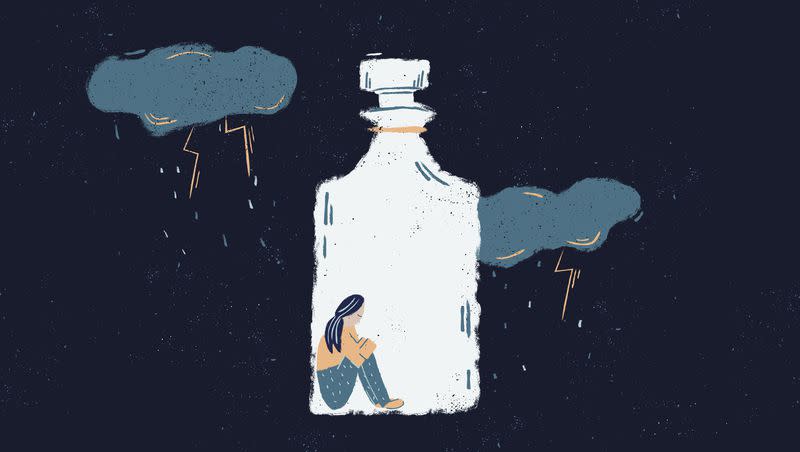Childhood neglect may impact future pleasure more than abuse

Children who’ve been neglected may have a harder time experiencing pleasure as young adults than even children who were abused, according to new research. And that’s especially true of children who suffered emotional neglect.
A study published in the journal Depression & Anxiety suggests deprivation even more than threat can trigger anhedonia, a condition marked by the inability to feel pleasure.
Study co-author Xiongzhao Zhu of Central South University said that childhood trauma “exerts a lasting impact on cognition, emotion and behavior in adulthood. Children who have experienced neglect may receive less attention and care from caregivers, resulting in less frequency of receiving feedback related to rewards and thus affecting reward learning.”
A Psychiatric News Alert on the study from the American Psychiatric Association notes that anhedonia is a “common symptom in a variety of psychiatric illnesses, including major depressive disorder and obsessive-compulsive disorder.” It said the condition may also “point to those most likely to develop mental illness.”
The study, conducted in China, included 305 patients with major depression, 152 with obsessive-compulsive disorder and 2,110 other university students. The average age was 22.
Among those with major depression, 69.8% had a history of childhood trauma and 62.6% had been neglected. Childhood trauma was reported for 65.8% of those with OCD, of whom 55.3% had experienced neglect. Childhood trauma was reported by 33.6%, while neglect was reported by 9% of the university students.
A large share of both groups experienced physical or social anhedonia, including between 72.5% to 82.5% of patients with depression and 47.4% to 65.7% of patients with obsessive-compulsive disorder. Among the general group of university students, anhedonia affected 15.3% to 19.8%.
“Regarding the more specific forms of (childhood trauma), emotional neglect had the strongest association with most aspects of anhedonia,” the researchers found.
What emotional neglect looks like
Jonice Webb, a licensed psychologist and author of the book “Running on Empty: Overcome your Emotional Neglect,” wrote about childhood emotional neglect for Psychology Today last May.
Her points may surprise some parents who drive their kids everywhere, feed them well, make sure they have clothing and shelter and in other ways are exemplary parents. She said that “childhood emotional neglect happens when your parents fail to notice or respond enough to your feelings while they raise you.”
According to Webb, it’s not about time or effort spent, it’s about emotional response. “The key question is this: Did she notice what you were feeling? Did she seem to care what you felt, what you wanted or what you needed to be happy and emotionally strong? Did she do all of these things enough?”
Not all emotional neglect stems from indifference or self-absorption, which can lead to both physical and emotional neglect. Experts say children can also have their needs neglected because parents don’t have enough resources or even are too busy and harried because they work multiple jobs. The impact is borne by the children who suffer neglect.
Webb takes a kind view of many moms who could be categorized as emotionally neglectful. She was addressing mothers in particular, and noted that “emotionally neglectful moms, because they’re not tuned in enough to the feeling world, end up delivering a unique kind of love to their children. It’s real and genuine love, of course, but it is missing something. It’s missing emotional attunement,” which she called the “source of true empathy.”
The Centers for Disease Control and Prevention lists several signs of emotional neglect from parents, including indifference, viewing the child as a burden, ignoring the child’s needs, apathy, a “mindless or uninvolved approach to parenting,” not offering affection and failing to be emotionally supportive in difficult situations, among others.
Related
That neglect can be intentional or unintentional. Some parents, CDC said, were neglected or abused themselves and don’t know how to parent differently. Addiction or mental illness can also impede a parent’s ability to nurture and respond. So can extreme stress or violence in the home.
The impact is not usually benign. CDC reported on signs of emotional neglect in childhood. This is just a sampling:
Low self-esteem.
Poor ability to regulate one’s emotions and being prone to outbursts.
Aversion to affection or accepting support.
Heightened awareness of rejection.
Developmental or cognitive delays.
Negativity toward parents.
Social withdrawal and poor peer relationships.
Anxiety or depression.
Problems in school.
Healing from within
Adults who were neglected as children may have post-traumatic stress disorder, panic attacks, mental illness, substance misuse, a hard time with relationships and many other challenges.
Choosingtherapy.com says it’s not too late to heal or build emotional intelligence. The site, which publishes content from licensed therapists, professors and other experts, recommends:
Practice self-compassion and let go of the self-criticism and judgments sparked by emotional neglect.
Engage body and mind. Yoga, tai chi and qigong all work body and mind in more healthy union.
Learn and practice regulation skills so you know how to feel things without letting your body’s reaction take over. Techniques include deep breathing and relaxation exercises.
Write a letter to your childhood self and offer that child the love, support and validation you didn’t receive as a child.
Seek comfort and joy to “heal your inner child.”
Get help and support.
Advocate for yourself — and for others.

